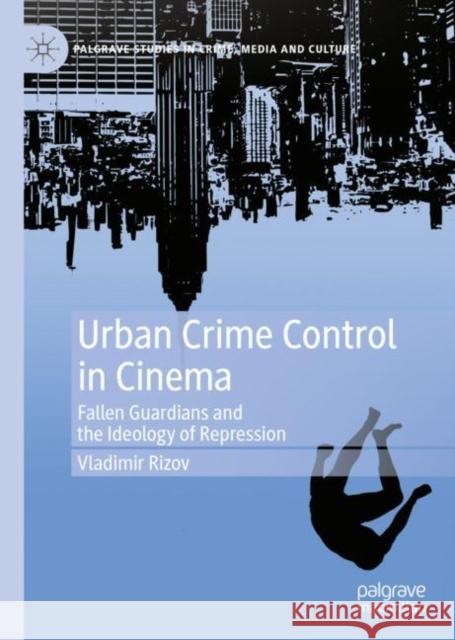Urban Crime Control in Cinema: Fallen Guardians and the Ideology of Repression » książka
Urban Crime Control in Cinema: Fallen Guardians and the Ideology of Repression
ISBN-13: 9783031129773 / Angielski / Twarda / 2023 / 242 str.
Urban Crime Control in Cinema: Fallen Guardians and the Ideology of Repression
ISBN-13: 9783031129773 / Angielski / Twarda / 2023 / 242 str.
(netto: 421,70 VAT: 5%)
Najniższa cena z 30 dni: 424,07
ok. 22 dni roboczych
Bez gwarancji dostawy przed świętami
Darmowa dostawa!
This book uses popular films to understand the convergence of crime control and the ideology of repression in contemporary capitalism. It focuses on the cinematic figure of the fallen guardian, a protagonist who, in the course of a narrative, falls from grace and becomes an enemy of the established social order. The fallen guardian is a figure that allows for the analysis of a particular crime control measure through the perspective of both an enforcer and a target. The very notion of ‘justice’ is challenged, and questions are posed in relation to the role that films assume in the reproduction of policing as it is. In doing so, the book combines a historical far-reaching perspective with popular culture analysis. At the core remains the value of the cinematic figure of the fallen guardian for contemporary understandings of urban space and urban crime control and how films are clear examples of the ways in which the ideology of repression is reproduced.This book questions the justifications that are often given for social control in cities and understands cinema as a medium for offering critique of such processes and justifications. Explored are the crime control measures of private policing in relation toRoboCop(1987), preventative policing andMinority Report(2002), mass incarceration inThe Dark Knight Rises(2012), and extra-judicial killing inBlade Runner 2049(2017). The book speaks to those interested in crime control in critical criminology, cultural criminology, urban studies, and beyond.
This book uses popular films to understand the convergence of crime control and the ideology of repression in contemporary capitalism. It focuses on the cinematic figure of the fallen guardian, a protagonist who, in the course of a narrative, falls from grace and becomes an enemy of the established social order. The fallen guardian is a figure that allows for the analysis of a particular crime control measure through the perspective of both an enforcer and a target. The very notion of ‘justice’ is challenged, and questions are posed in relation to the role that films assume in the reproduction of policing as it is. In doing so, the book combines a historical far-reaching perspective with popular culture analysis. At the core remains the value of the cinematic figure of the fallen guardian for contemporary understandings of urban space and urban crime control and how films are clear examples of the ways in which the ideology of repression is reproduced.This book questions the justifications that are often given for social control in cities and understands cinema as a medium for offering critique of such processes and justifications. Explored are the crime control measures of private policing in relation to RoboCop (1987), preventative policing and Minority Report (2002), mass incarceration in The Dark Knight Rises (2012), and extra-judicial killing in Blade Runner 2049 (2017). The book speaks to those interested in crime control in critical criminology, cultural criminology, urban studies, and beyond.











